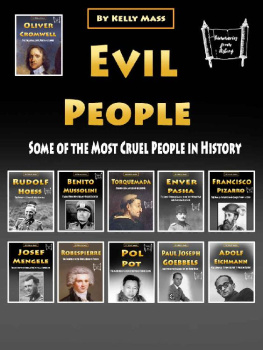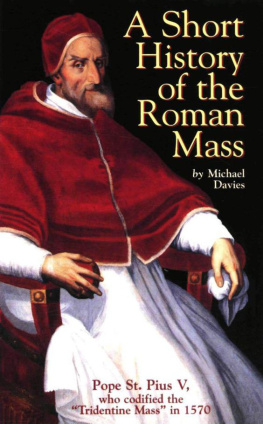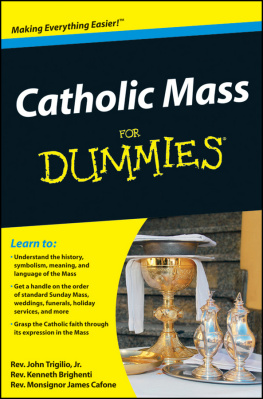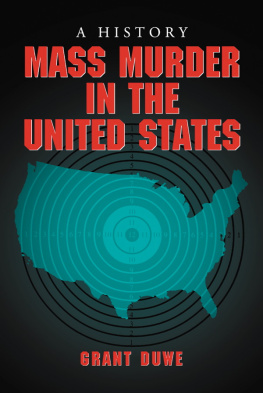Chapter 1: Who Was Adolf Eichmann?
In this book, we will talk about one of the evilest people we know of, a Nazi commander who had so much blood on his hands that some people were afraid of the fact that Hitler would be killed and he would be the one to take control, which would make things even worse. Was he a psychopath? Did he just become this way because of the harsh circumstances of the Great Depression in Germany before World War 2? I guess some questions will be left unanswered, but at least we will answer some of them in this book.
Adolf Eichmann was a German-Austrian SS-Obersturmbannfhrer and one of the primary organizers of the Holocaust, typically called the "Last Resolution to the Jewish Question." SS-Obergruppenfhrer Reinhard Heydrich charged him at the time of the second world war with helping with and monitoring the logistics of the mass deportation of Jews to ghettos and death camps in Nazi-occupied Eastern Europe. On May 11, 1960, the Mossad caught Eichmann in Argentina, and he was convicted guilty of war criminal activities in an extensively advertised trial in Jerusalem, where he was awaited 1962.
Eichmann temporarily worked for his dad's mining company in Austria, where the family had moved in 1914, after failing to do well in school. Starting in 1927, he worked as a travelling oil salesperson before signing up with the Nazi Party and the SS in 1932. In 1933, he went back to Germany and signed up with the Sicherheitsdienst (SD), where he was designated chief of the area in charge of Jewish affairs, which includes emigration, which the Nazis supported through cruelty and financial pressure. Following the start of the second world war in the month of September 1939, Eichmann and his team organized for Jews to be restricted to ghettos in significant towns, with the intent of transferring them either more east or abroad. He also designed ideas for a Jewish appointment, initially in Nisko, Poland, and consequently in Madagascar, but neither plan was executed.
In June 1941, the Nazis attacked the Soviet Union, and their Jewish policy moved from emigration to annihilation. On January 20th, 1942, Heydrich, Eichmann's remarkable, hosted the program's administrative authorities at the Wannsee Conference to go over genocide planning. Eichmann helped him by collecting info, participating in the conference, and preparing the minutes. Eichmann and his team supervised of deporting Jews to extermination camps, where they were gotten rid of. In March 1944, Germany attacked Hungary, and Eichmann managed the deportation of a pretty large portion of the Jewish population. Most of the victims were deported to Auschwitz, where around 75% of them were killed on arrival. 437,000 of Hungary's 725,000 Jews had been butchered by the time the transportations were stopped in July 1944. At the Nuremberg trials, Dieter Wisliceny affirmed that Eichmann told him he would "jump laughingly into the tomb simply because the sense of having 5 million people on his conscience would give tremendous fulfillment for him."
Eichmann was caught by U.S.A. soldiers after Germany's collapse in 1945, but he left from a detention camp and took a trip about Germany to avert re-capture. He ultimately settled in a little town in Lower Saxony, where he stayed till 1950, when he went to Argentina with the support of a group led by Catholic bishop Alois Hudal. In 1960, info gathered by Israel's espionage company, Mossad, developed his place. Eichmann was collared by a group of Mossad and Shin Bet officers and carried to Israel to face fifteen criminal charges, including but not limited to war criminal offenses, criminal offenses against humankind, and criminal activities against the Jewish people. Throughout the trial, he reasoned that he was just following orders in a totalitarian Fhrerprinzip system, instead of rejecting the Holocaust or his role in its planning. On June 1st, 1962, he was condemned of all charges and executed by hanging. The trial got prevalent media coverage and was ultimately the subject of some books, including but not limited to Hannah Arendt's Eichmann in Jerusalem, in which she created the expression "the banality of evil" to specify Eichmann.
Chapter 2: His Younger Years and Beginning Days
Let's talk about his personal life, because typically, when people become mass murderers or sadists, there is some childhood trauma or later events in life that shaped their character (or lack of it). Otto Adolf Eichmann, the oldest of 5 kids, was born in 1906 in Solingen, Germany, to a Calvinist Protestant family. Adolf Karl Eichmann, an accountant, and Maria (ne Schefferling), a homemaker, were his parents. The senior Adolf transferred to Linz, Austria, in 1913 to work for the Linz Tramway and Electrical Company as an industrial supervisor, and the remainder of the family followed a year later. Eichmann's dad wed Maria Zawrzel, a strong Protestant with 2 boys, after Maria's death in 1916.
Eichmann participated in the Kaiser Franz Joseph Staatsoberrealschule in Linz, the exact same high school as Adolf Hitler had participated in 17 years before.
He played the violin and belonged to a Wandervogel woodcraft and searching group, that included some older boys who were members of different conservative militias. His dad withdrew him from the Realschule and registered him in the Hhere Bundeslehranstalt fr Elektrotechnik, Maschinenbau, and Hochbau trade college as a result of his poor scholastic efficiency. He left without a diploma and went to work for his dad's new company, the Untersberg Mining Business, for some months. He worked as a sales clerk for the Obersterreichische Elektrobau AG radio firm from 1925 to 1927. Eichmann then worked as a district representative for the Vacuum Oil Business AG in Upper Austria and Salzburg from 1927 to early 1933.
At the time of this time, he signed up with the Jungfrontkmpfervereinigung, Hermann Hiltl's conservative veterans movement's youth branch, and started reading Nazi Party papers.
The separation of the Weimar Republic in Germany, rejection of the conditions of the Treaty of Versailles, extreme antisemitism, and anti-Bolshevism were all part of the party platform. They promised a strong main authority, more Lebensraum (home) for Germanic tribes, the development of a nationwide community based upon race, and racial cleaning through the active maltreatment of Jews, who would be denied citizenship and civil liberties.
On April the 1st 1932, Eichmann signed up with the Austrian chapter of the Nazi Party, member number 889,895, on the suggestion of a family good friend and regional SS chief, Ernst Kaltenbrunner.
7 months later, his SS subscription was validated (SS member number 45,326). SS-Standarte 37 was his program, and it supervised of protecting the party head office in Linz and protecting party speakers at rallies, which were infamously violent. On weekends, Eichmann went on to work at Vacuum Oil in Salzburg while partaking in partying in Linz.
Due to labor force cuts at Vacuum Oil, Eichmann lost his work several months after the Nazis took power in Germany in the month of January 1933. Around the exact same time, the Nazi Party was forbidden in Austria. Eichmann's choice to return to Germany was impacted by these incidents.













